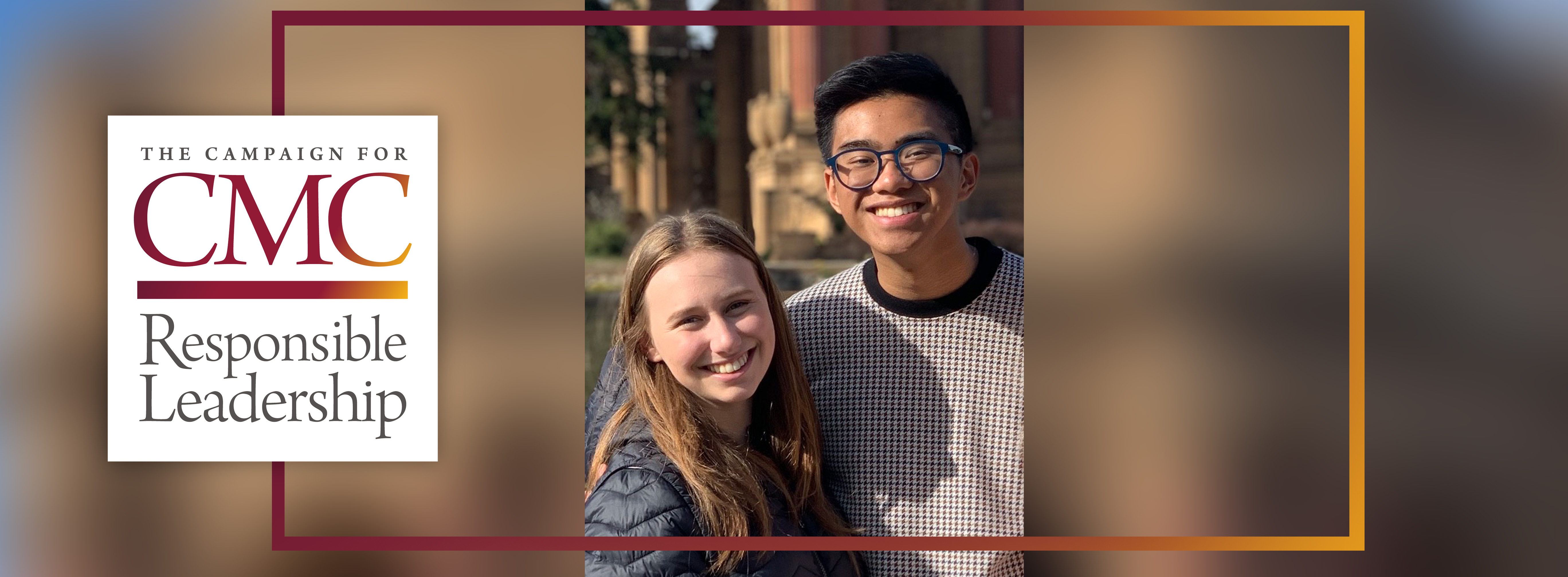
Via their summer research projects, students explored what they were living through
In late spring of 2020, Prof. Amy Kind, director of the Gould Center for Humanistic Studies, was contemplating how her students’ lives were being upended and impacted by the COVID-19 pandemic. Their academic projects were on hold, their internships cancelled. To help mitigate the disappointment, and to help them cope, she decided to implement a plan for students to explore “something about the pandemic that we are all living through, by doing their own research and development.”
Kind quickly began to assemble the components for a new summer research program, “Power of Humanities During a Pandemic.” She distributed a call for proposals from students, and accepted 10 into the John R. Dunbar Fellowship program.
“We ended up with quite a range of projects connected to the pandemic, from a student who wanted to go into the woods by himself to tell a story through music and photography, to another who explored how propaganda narratives are created in times of crisis,” Kind said. “I am a big believer in giving students the opportunity to pick something, an idea that resonates with them, take it and run with it.”
The Dunbar fellows could work individually or in pairs. And they had six weeks to complete their research projects.
The Dunbar fellowship program ran in parallel with the Creative Works fellowships, which the Gould Center has offered for the past two years. Like those for Creative Works, the Dunbar projects were required to be grounded in the humanities. “Each project needed to contain humanistic elements and they had to be achievable, something the students could accomplish in the short amount of time they had,” explained Kind.
For some of the students involved, working on a pandemic-related project was a way of finding a perspective on what was happening in their own lives.
“In the face of shelter-in-place orders that our peers begrudgingly followed, we began to think about how difficult it would have been for past generations to be relegated to their homes absent the technological comforts that we had to tide us over during our quarantine,” said Jon Joey Telebrico ’23 (economics and data science), who collaborated with Makenna Mahrer ’23 (literature and Italian studies).
The duo created a website, pandemos.io, which serves as a forum and “database of pandemic experiences for posterity,” Telebrico said. On the Pandemos site, they shared their research discoveries, from the history of quarantining, to the role of humor in pandemics (featuring political cartoons created during the 1918 influenza pandemic), among other topics.
Reflecting back on her summer Dunbar project, Mahrer said: “It connected me and my project partner. Even though we were working on it from entirely separate locations, the level of collaboration really made it feel as though we were still together. I think we were also surprised as to what we were ultimately able to accomplish, and definitely have a much better sense of what in-depth research in the humanities requires, which was an extremely valuable takeaway.”
“We began to think about how difficult it would have been for past generations to be relegated to their homes absent the technological comforts that we had to tide us over during our quarantine.”
—Jon Joey Telebrico ’23

